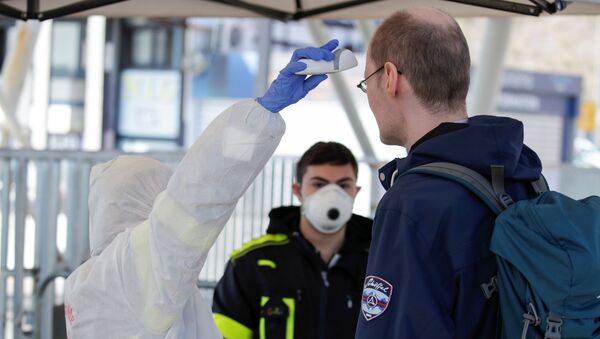Looking at how events, facilities and workplaces will adapt going forwards, Sputnik spoke to Dr Kyungmee Lee – a Lecturer in Technology Enhanced Learning at Lancaster University.
Sputnik: How do you think Universities and schools will adapt to the increasing threat of the coronavirus - both in terms of learning, and potential future enrolment of students?
Kyungmee Lee: We can certainly learn from the other examples set by other countries affected by coronavirus earlier than us like South Korea, China and Italy. If you look at those cases, actually what really happened was governments announced the closure of entire schools and universities first and then they will suspend face to face classes and meetings. After that universities will react accordingly based on their situation but I can see some universities in the UK will be just ready to jump into online education immediately because they have been doing that and in fact some UK universities - particularly those that have a lot of Chinese students enrolled but who are currently in their own countries - have been already offering this online education to them. I can see some universities will just do the online education immediately but of course some universities will need more time to prepare; so two to four weeks, roughly the break for the preparation will be conducted.
Sputnik: What can the academic institutions do to control the spread of the virus?
Kyungmee Lee: Things are kind of normal. At the moment universities are following government advice and classes are running as normal, with students are around, but certainly, there is a push from students because they're anxious and some students really show the uncertainty to come to university. For example, students have started to organize petitions asking universities to close classes down and provide online education -obviously, it shows that they do not feel safe to come to campus. It's very difficult for universities to make any decision in terms of stopping the spread of coronavirus. In many cases for universities on campus, they haven't really had cases yet but what universities are trying to do right now and should probably try to do more, is to communicate with students daily and really help them to not necessarily panic but be aware of and very cautious about the consequences of their behaviours, not only to themselves but to their little community there.
Sputnik: How will exams be taken if the virus continues to spread?
Kyungmee Lee: There is no solution in this situation because it really depends on the nature of discipline and courses. Some courses will find it easier to replace the exam with individual assignments but some courses will find it impossible for them to change the way that they exam students and then they will probably look for different online exam software and try to do things online. If you imagine the science courses that should be assessed, it may not be possible for them to do anything else, so they have to wait until these things finish. The important thing is that I think all these kind of options come with a different set of additional challenges. It's not as easy as it just sounds. It would be very important to get the flexibility to individual academics and choices to individual academics and help them make the most sound choice in their own context and support their choice along the way, but again, let's hope that that will we will not go that far.



